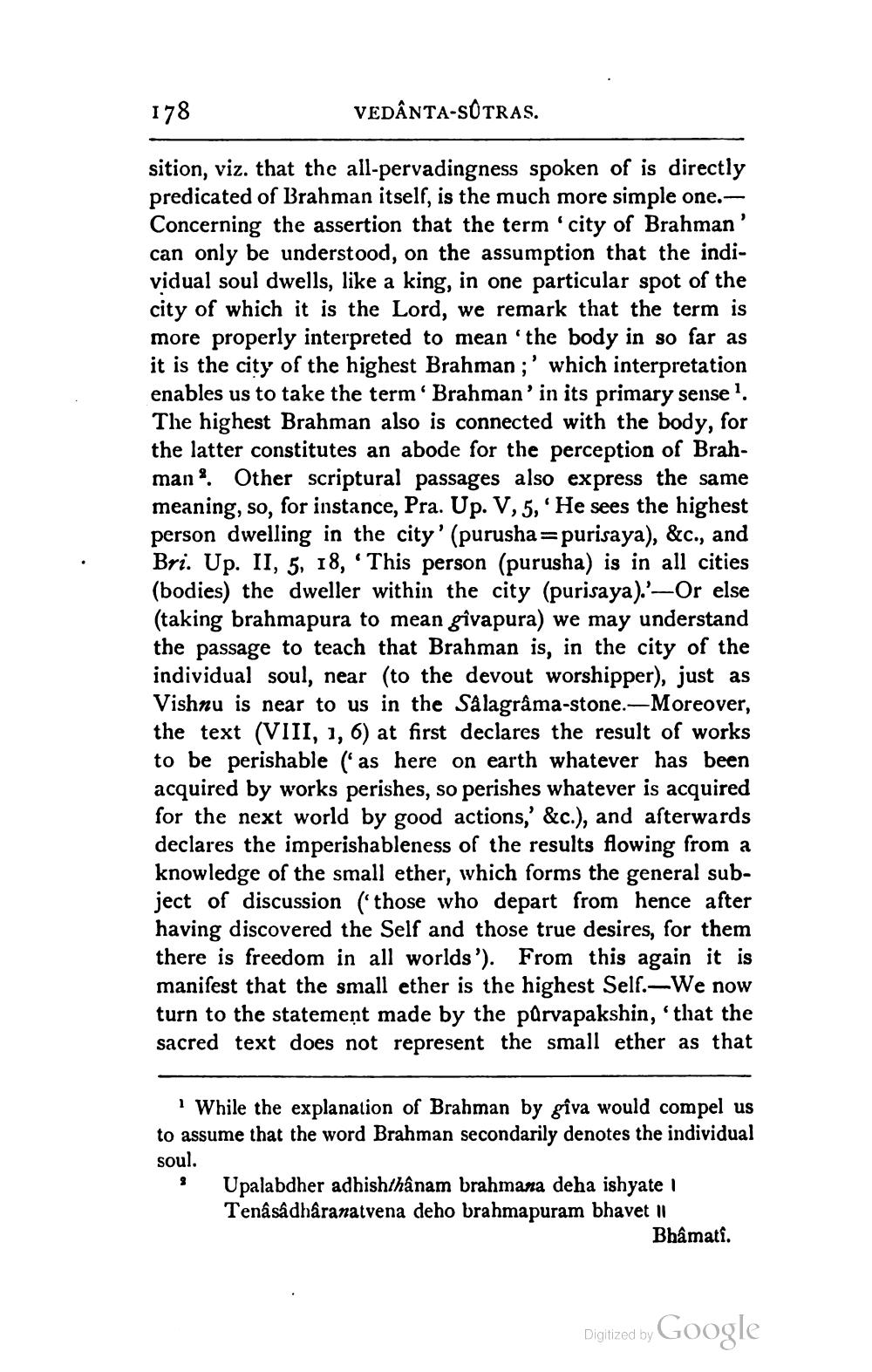________________
178
VEDÂNTA-SÛTRAS.
sition, viz. that the all-pervadingness spoken of is directly predicated of Brahman itself, is the much more simple one.Concerning the assertion that the term 'city of Brahman' can only be understood, on the assumption that the individual soul dwells, like a king, in one particular spot of the city of which it is the Lord, we remark that the term is more properly interpreted to mean 'the body in so far as it is the city of the highest Brahman ;' which interpretation enables us to take the term 'Brahman'in its primary sense. The highest Brahman also is connected with the body, for the latter constitutes an abode for the perception of Brahman. Other scriptural passages also express the same meaning, so, for instance, Pra. Up. V, 5, 'He sees the highest person dwelling in the city' (purusha=purisaya), &c., and Bri. Up. II, 5, 18, 'This person (purusha) is in all cities (bodies) the dweller within the city (purisaya).'—Or else (taking brahmapura to mean givapura) we may understand the passage to teach that Brahman is, in the city of the individual soul, near (to the devout worshipper), just as Vishnu is near to us in the Salagrâma-stone.—Moreover, the text (VIII, 1, 6) at first declares the result of works to be perishable (as here on earth whatever has been acquired by works perishes, so perishes whatever is acquired for the next world by good actions,' &c.), and afterwards declares the imperishableness of the results flowing from a knowledge of the small ether, which forms the general subject of discussion (those who depart from hence after having discovered the Self and those true desires, for them there is freedom in all worlds'). From this again it is manifest that the small ether is the highest Self.—We now turn to the statement made by the purvapakshin, 'that the sacred text does not represent the small ether as that
While the explanation of Brahman by gîva would compel us to assume that the word Brahman secondarily denotes the individual
soul.
Upalabdher adhishthanam brahmana deha ishyate 1 Tenâsâdharanatvena deho brahmapuram bhavet 11
Bhẩmati.
Digitized by Google




